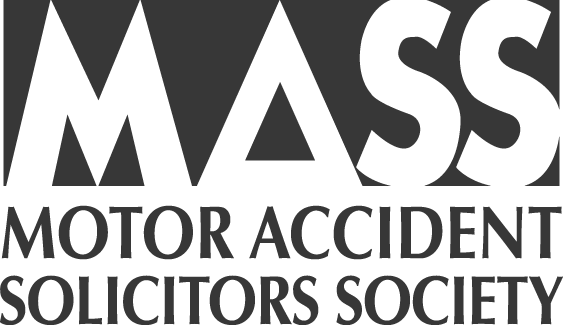Jason Claridge (Personal Injury and Clinical Negligence Specialist at Ward & Rider Solicitors) acted recently for Mrs W in respect of a personal injury compensation claim arising out of an accident whereby she was knocked over whilst crossing the road.
Mrs W had been on her way to an appointment. As she attempted to cross the road, she was struck by the Defendant who was driving his motor car. The accident was witnessed by others and the emergency services attended upon Mrs W.
As a consequence of the accident, she suffered the following injuries: –
- A fracture vertebra in her back.
- Generalised soft tissue injuries including bruising and cuts.
- A suspected mild traumatic head injury which included memory and concentration problems, light insensitivity, headaches, dizziness and balance issues.
- Psychological injuries.
As a result of the accident, she was left with ongoing pain from her back injury which would properly be described as chronic pain. This restricted her in terms of her domestic activities which were taken over in part by her family and in part by professional help.
She was always meticulously tidy at home and as a result of the accident she was unable to do the heavier domestic activities. This included cleaning and doing the laundry. Furthermore, she had struggles with doing heavier shopping and she would rely on her husband to assist her all the time. In addition, she had issues with gardening which was a passion of hers which she had to cease doing.
At work, which was another passion of hers, she struggled. She had problems with the intellectual demands placed on her by work. Furthermore, the pain that she suffered meant that she had to have adjustments at work including an ergonomic assessment and a different work set up. She had periods of time when the pain was such that she had to take time off work and this caused her to suffer from a deterioration in her mood because she enjoyed the work that she did, she took great pleasure out of helping her clients and she struggled with being isolated from her work colleagues.
We notified the Defendants of the claim and this was a matter in the hands of the insurance company and then their lawyers. Liability was disputed. They argued that Mrs W had got out of her vehicle and was obscured between parked cars and a tree at the side of the road and then they argued that she ran into the road in front of their client’s vehicle giving them no opportunity to avoid the collision.
We obtained evidence which showed that due to her height she could not be obscured and that the position of the tree was back onto the pavement and as a consequence it could not realistically be said that she would not have been visible to the driver.
Mrs W accepted that she did not see the car until much later when crossing the road. She accepted that she quickened her pace when seeing the car but did not run into the car’s path. Although she had a prearranged appointment the call to the emergency services was 10 minutes before her appointment and she was five minutes away from the appointment venue at the time of the accident. We obtained expert evidence on the timings of the vehicle and the reaction time of the driver.
We produced measurements and photographs. We relied on a line of case law which puts the onus onto the driver to be careful when driving their vehicle when pedestrians are around. This was a built-up area. There was a school nearby. It would have been common, we argued, that people would have been crossing the road.
We obtained a report from a psychologist in relation to her psychological injuries. This confirmed that she had suffered a psychological reaction which was contingent upon the physical pain that she was suffering from and also a post-traumatic stress type injury. Treatment was recommended. A review was also recommended if she did not make the recovery that was hoped for.
We obtained a report from a neurosurgeon who dealt with the spinal injury that she suffered. His view was that she would be left with ongoing and persistent pain as a consequence of the injury that she suffered. He was of the opinion that in all likelihood at some point her resilience to the pain would reduce to the level whereby she would struggle to continue to work normally as she had been doing before the accident.
He supported the loss of functionality which would see her struggle with domestic activities. She had prior to the accident worked four days a week with one day a week being spent entirely on domestic activities. He accepted that her restrictions were such that she would need help from her family or alternatively help from professionals such as cleaners and gardeners.
We obtained a report from a neurologist. He accepted that in light of Mrs W’s descriptions of the accident and the aftermath of it she, on the balance of probabilities, suffered a mild traumatic brain injury as well as trauma to her whole body as a consequence of being hit by the vehicle. He gave the opinion that she would in all likelihood struggle at work due to the cognitive issues that she had been left with. He recommended further investigation from a neuropsychologist and ENT surgeon.
It was agreed that the parties would have a Joint Settlement Meeting to discuss all of the issues in relation to this case, namely the following:-
- Liability
- Contributory negligence (partial fault)
- Causation
- Valuation
Such Joint Settlement Meetings are often used in such cases and are seen as an appropriate and cost-effective way of resolving and settling issues and cases generally. Mrs W attended to provide instructions. The Defendant’s insurance company also attended remotely to provide instructions to their legal team who attended.
There were offers and counteroffers in respect of the issues of liability and contributory negligence, the valuation of the claim for compensation for the injuries and consequential financial losses.
The matter concluded with Mrs W accepting the sum of £130,000 in full and final settlement of her case after reduction for contributory negligence (fault).
Although Mrs W’s details have been changed, this case is a case which was run by Ward & Rider Solicitors under a Conditional Fee Agreement, commonly referred to as a No Win No Fee Agreement. We are willing and able to assist on claims involving injuries arising out of road traffic accidents (as was the case in this matter), accidents at work, accidents where people have tripped or slipped, as well as industrial disease such as mesothelioma, and clinical negligence cases. Mrs W’s details have been changed in order to protect her privacy. If you wish to consult Ward & Rider Solicitors please contact us by phone, email, live chat or contact form.





